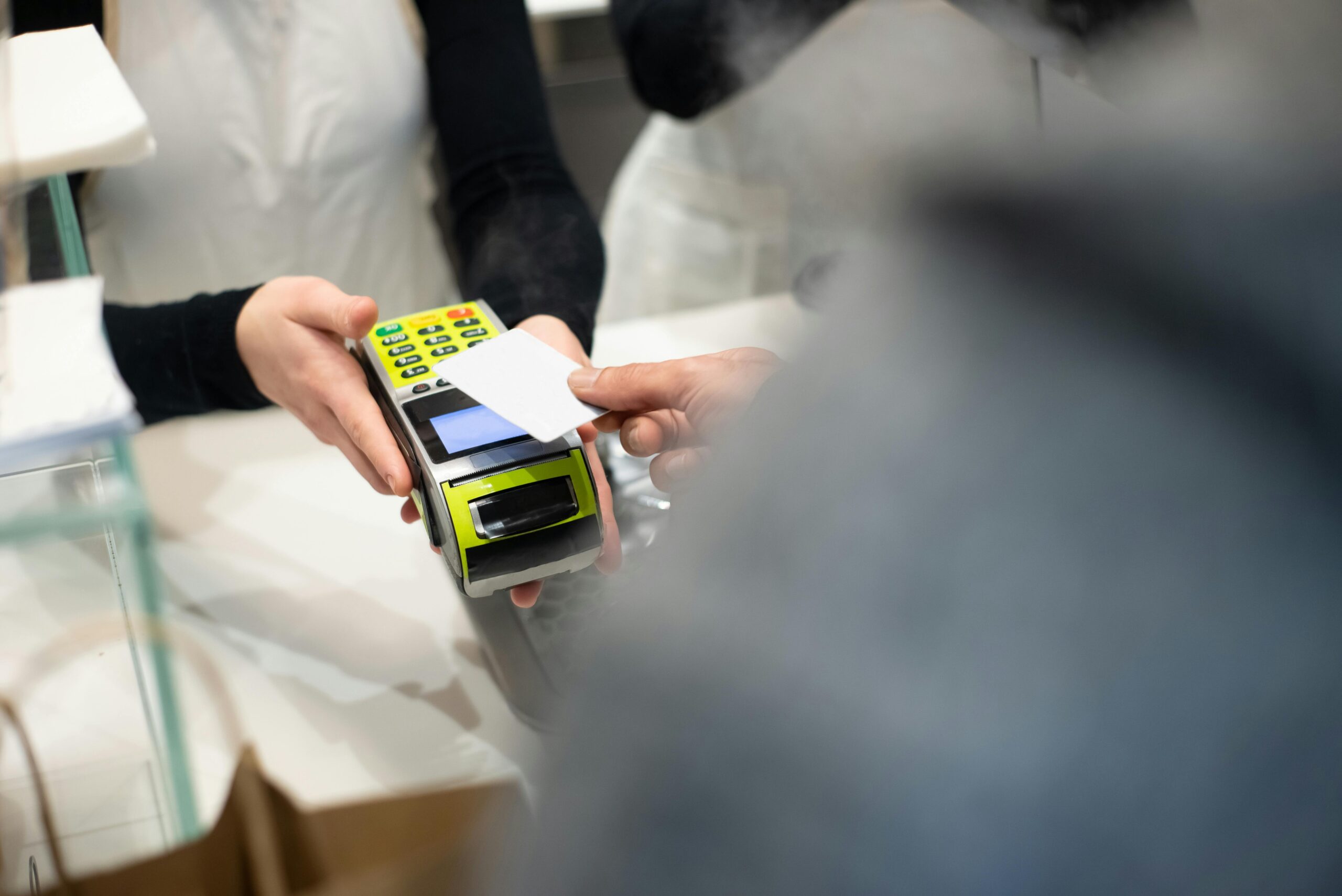The landscape of ethical consumption is undergoing a dramatic transformation as innovative technologies and consumer awareness converge to reshape fair trade practices worldwide.
🌍 The Evolution Beyond Traditional Fair Trade Certification
Fair trade has long represented a commitment to equitable commerce, ensuring producers in developing countries receive fair compensation for their goods. However, the traditional certification model faces mounting challenges in today’s rapidly evolving marketplace. Consumer skepticism about certification legitimacy, complex supply chains, and the emergence of direct-to-consumer technologies are fundamentally altering how ethical trade operates.
The next generation of fair trade models leverages blockchain technology, artificial intelligence, and direct connectivity between producers and consumers. These innovations address longstanding transparency issues while creating more efficient pathways for ethical commerce. Unlike conventional certification systems that rely heavily on periodic audits and paper documentation, emerging models provide real-time verification and unprecedented supply chain visibility.
Blockchain: The Transparency Revolution
Blockchain technology stands at the forefront of revolutionizing fair trade practices. By creating immutable records of transactions and product journeys, blockchain eliminates many trust barriers that have historically plagued ethical commerce. Each step in the supply chain becomes permanently recorded, from harvest to retail shelf, creating an unbreakable chain of custody.
Several pioneering companies have already implemented blockchain-based fair trade systems. Coffee producers in Colombia can now register their harvests on distributed ledgers, with consumers scanning QR codes to trace their morning brew back to specific farms. This level of granular transparency was virtually impossible under traditional certification schemes.
Smart Contracts Automating Fair Compensation
Smart contracts represent another breakthrough in ensuring fair trade principles. These self-executing agreements automatically release payments when predetermined conditions are met, eliminating intermediaries who traditionally captured significant portions of consumer payments. When a shipment arrives and quality standards are verified, smart contracts instantly transfer funds to producers, reducing payment delays from months to minutes.
This automation particularly benefits small-scale producers who previously lacked bargaining power and faced lengthy payment cycles. The transparency inherent in smart contracts also prevents price manipulation and ensures agreed-upon fair trade premiums actually reach intended recipients.
Direct-to-Consumer Platforms Reshaping Value Chains
The rise of digital platforms connecting producers directly with conscious consumers represents a fundamental shift in fair trade economics. By eliminating multiple intermediary layers, these platforms ensure producers capture substantially larger portions of retail prices while often reducing costs for end consumers.
Platforms like Moyee Coffee and Tony’s Chocolonely have demonstrated the viability of radical transparency and direct relationships. These companies publish detailed breakdowns showing exactly how each dollar is distributed across the value chain, empowering consumers to understand the true impact of their purchasing decisions.
Mobile Technology Empowering Producer Communities
Smartphone penetration in developing countries has created unprecedented opportunities for producer empowerment. Mobile applications now enable farmers to access real-time market prices, connect with buyers, receive agronomic advice, and manage their businesses more effectively. This technological democratization reduces information asymmetries that historically disadvantaged rural producers.
Applications specifically designed for smallholder farmers provide market linkages, weather forecasts, pest identification, and financial services. By putting powerful tools directly in producers’ hands, these platforms shift power dynamics within supply chains and create more balanced trading relationships.
🔍 AI and Data Analytics Enhancing Impact Measurement
Artificial intelligence is transforming how we measure and verify the social and environmental impact of fair trade initiatives. Machine learning algorithms can analyze satellite imagery to verify sustainable farming practices, detect deforestation, and monitor water usage without requiring constant physical inspections.
Predictive analytics help fair trade organizations identify communities most in need of support and optimize resource allocation. By processing vast amounts of data on economic indicators, climate patterns, and social conditions, AI systems provide insights that would be impossible for human analysts to derive manually.
Sentiment Analysis and Consumer Behavior Insights
Natural language processing tools analyze consumer sentiment across social media and review platforms, helping ethical brands understand what matters most to conscious consumers. These insights inform product development, marketing strategies, and transparency initiatives, creating a feedback loop that continuously improves fair trade offerings.
Data analytics also help combat greenwashing by identifying inconsistencies between company claims and actual practices. Independent verification systems powered by AI can cross-reference multiple data sources to validate sustainability assertions, protecting consumers from misleading marketing.
Regenerative Commerce: Beyond Fair to Transformative
The next generation of ethical consumerism transcends basic fairness to embrace regenerative principles. Rather than simply doing less harm, regenerative commerce actively improves social and environmental conditions. This paradigm shift reflects growing consumer demand for products that contribute positively to planetary and human wellbeing.
Regenerative fair trade models incorporate holistic metrics including soil health improvement, biodiversity enhancement, community resilience building, and carbon sequestration. Companies adopting this approach recognize that true sustainability requires systems that restore rather than merely sustain.
Circular Economy Integration
Progressive fair trade organizations are integrating circular economy principles, designing products and systems that eliminate waste and keep materials in use indefinitely. This integration extends fair trade concepts beyond initial production to encompass entire product lifecycles, ensuring ethical considerations apply to recycling, repurposing, and end-of-life management.
Fashion brands pioneering this approach establish take-back programs, use recycled materials sourced through fair trade channels, and design garments for longevity and eventual biodegradation. These practices create closed loops that maximize value retention while minimizing environmental impact.
💡 Community-Owned Cooperatives and DAOs
Decentralized Autonomous Organizations (DAOs) represent an experimental frontier in democratic governance for fair trade enterprises. These blockchain-based organizations enable producer communities to collectively own and govern trading platforms, making decisions through transparent voting mechanisms encoded in smart contracts.
Unlike traditional cooperatives with centralized management structures, DAOs distribute decision-making power across all members regardless of geography. Token-based governance systems allow producers to vote on pricing strategies, quality standards, and investment priorities, creating genuinely democratic commercial organizations.
Stakeholder Capitalism in Practice
Next-generation fair trade models embrace stakeholder capitalism, balancing interests of producers, consumers, employees, communities, and the environment rather than prioritizing shareholder returns exclusively. Benefit corporations and social enterprises structured around stakeholder value creation demonstrate that profitability and purpose can coexist harmoniously.
These organizations measure success through triple-bottom-line accounting, quantifying social and environmental returns alongside financial performance. Transparent reporting on all three dimensions enables consumers to make informed choices aligned with their values while holding companies accountable to stated ethical commitments.
Certification 2.0: Dynamic and Data-Driven
While traditional fair trade certifications retain value, they’re evolving to incorporate digital verification methods and real-time monitoring. Next-generation certification systems combine periodic audits with continuous data collection through IoT sensors, satellite monitoring, and blockchain records, providing more comprehensive and timely assurance.
Dynamic certification models adjust requirements based on local contexts rather than imposing one-size-fits-all standards. Machine learning algorithms help identify which practices most effectively improve outcomes in specific environments, enabling evidence-based refinement of certification criteria.
Micro-Certifications and Modular Standards
Recognizing that comprehensive certification can be prohibitively expensive for small producers, innovative systems offer micro-certifications for specific practices or attributes. Producers can pursue modular credentials in areas like water conservation, fair wages, or organic methods, building comprehensive ethical profiles incrementally rather than requiring immediate compliance with extensive requirements.
This approach lowers barriers to entry for ethical commerce while providing consumers with granular information about specific product attributes they prioritize. Digital badges and transparent scoring systems communicate complex sustainability information in accessible formats.
🛒 The Role of Conscious Consumers in Driving Change
Consumer activism remains the ultimate driver of fair trade evolution. As awareness grows regarding social and environmental consequences of purchasing decisions, demand for ethical products continues expanding. This consumer pressure incentivizes mainstream retailers to prioritize fair trade offerings and adopt more transparent practices.
Social media amplifies consumer voices, enabling rapid mobilization around ethical issues and corporate accountability. Viral campaigns highlighting exploitative practices can significantly damage brand reputation, creating powerful incentives for companies to embrace genuine fair trade principles rather than superficial greenwashing.
Education and Informed Decision-Making
Effective ethical consumerism requires accessible information about product origins and impacts. Mobile applications that scan barcodes and provide instant sustainability ratings empower shoppers to make values-aligned choices at the point of purchase. These tools aggregate information from multiple sources, presenting complex supply chain data in user-friendly formats.
Educational initiatives building consumer literacy about fair trade principles, certification systems, and supply chain realities strengthen the foundation for informed purchasing. As understanding deepens, consumers develop more sophisticated expectations and hold brands to higher standards.
Collaborative Ecosystems and Collective Impact
The most promising fair trade innovations emerge from collaborative ecosystems bringing together diverse stakeholders. Technology companies, NGOs, producer organizations, retailers, and policymakers are forming partnerships that leverage complementary strengths to create systemic change.
These multi-stakeholder initiatives develop shared infrastructure like blockchain platforms, establish common standards, and coordinate advocacy efforts. By working collectively rather than pursuing isolated solutions, participants achieve scale and impact impossible for individual organizations.
Government Policy and Regulatory Support
Progressive government policies accelerate fair trade adoption by creating incentives for ethical commerce and penalizing exploitative practices. Public procurement policies favoring certified fair trade products create stable demand, while regulations mandating supply chain transparency increase accountability.
International trade agreements increasingly incorporate labor and environmental standards, raising baseline expectations for global commerce. These policy frameworks complement market-based fair trade initiatives, creating comprehensive systems supporting ethical production.
🚀 Emerging Technologies Shaping the Future
Virtual and augmented reality technologies offer immersive experiences connecting consumers with producer stories. Imagine virtually visiting the cooperative farm that grew your coffee beans or experiencing a day in the life of artisans crafting your jewelry. These technologies create emotional connections that strengthen commitment to ethical consumption.
Internet of Things sensors embedded in packaging could provide real-time updates on product journeys, environmental conditions during transport, and authentication verification. Such innovations make supply chain transparency effortless and engaging rather than requiring deliberate consumer research.
Quantum Computing and Supply Chain Optimization
While still emerging, quantum computing promises revolutionary supply chain optimization capabilities. These powerful systems could simultaneously analyze countless variables to identify configurations maximizing both efficiency and ethical outcomes, solving complex logistics challenges that currently require tradeoffs between cost and values.
Advanced modeling could predict optimal crop diversification strategies, fair pricing mechanisms accounting for future market conditions, and resource allocation approaches maximizing community wellbeing while ensuring economic viability.
Overcoming Implementation Challenges
Despite exciting possibilities, significant challenges impede widespread adoption of next-generation fair trade models. Digital literacy gaps in producer communities require substantial investment in training and infrastructure. Not all farmers have smartphones or reliable internet access necessary to participate in digital platforms.
Financing remains another obstacle, as implementing blockchain systems, IoT sensors, and AI analytics requires capital that resource-constrained cooperatives often lack. Innovative funding mechanisms including impact investment, blockchain-based microfinance, and revenue-sharing arrangements help bridge these gaps.
Cultural Sensitivity and Inclusive Design
Technology solutions must respect cultural contexts and incorporate producer perspectives throughout design processes. Imposing systems developed in wealthy countries without considering local realities, languages, and workflows often leads to low adoption and limited impact. Participatory design approaches that center producer needs and preferences create more effective and empowering tools.
Building trust in new systems requires patience, clear communication, and demonstrated benefits. Producers who have experienced exploitation may reasonably skeptical of new initiatives promising transformation, necessitating transparent relationship-building and proof of concept before widespread adoption.

🌟 A Vision for Equitable Global Commerce
The convergence of technological innovation, consumer consciousness, and producer empowerment creates unprecedented opportunities for revolutionizing fair trade. These next-generation models promise more than incremental improvements—they offer pathways toward fundamentally restructuring global commerce around principles of equity, sustainability, and shared prosperity.
Success requires sustained commitment from all stakeholders. Consumers must translate values into purchasing decisions and advocate for systemic change. Companies need to prioritize purpose alongside profit, investing in transparent and equitable supply chains. Technology providers should develop accessible, user-centered solutions addressing real needs rather than imposing complex systems. Policymakers must create supportive regulatory environments and incentive structures.
The journey toward truly ethical global commerce remains long, but the tools, awareness, and momentum now exist to achieve transformative progress. By embracing innovation while staying grounded in core fair trade principles—fair compensation, safe conditions, environmental stewardship, and producer empowerment—we can build commercial systems that honor human dignity and planetary boundaries.
Every purchase represents a vote for the kind of world we want to create. As next-generation fair trade models mature and scale, those votes become increasingly powerful, capable of reshaping global economic systems one transaction at a time. The revolution in ethical consumerism isn’t coming—it’s already here, and each of us plays a role in determining its trajectory and ultimate impact.
Toni Santos is a global-policy researcher and ethical-innovation writer exploring how business, society and governance interconnect in the age of interdependence. Through his studies on corporate responsibility, fair trade economics and social impact strategies, Toni examines how equitable systems emerge from design, policy and shared vision. Passionate about systemic change, impact-driven leadership and transformative policy, Toni focuses on how global cooperation and meaningful economy can shift the scenario of globalization toward fairness and purpose. His work highlights the intersection of economics, ethics and innovation — guiding readers toward building structures that serve people and planet. Blending policy design, social strategy and ethical economy, Toni writes about the architecture of global systems — helping readers understand how responsibility, trade and impact intertwine in the world they inhabit. His work is a tribute to: The global commitment to equity, justice and shared prosperity The architecture of policy, business and social impact in a connected world The vision of globalization as cooperative, human-centred and regenerative Whether you are a strategist, policymaker or global thinker, Toni Santos invites you to explore ethical globalization — one policy, one model, one impact at a time.




